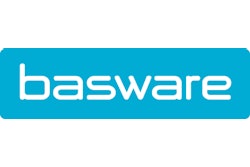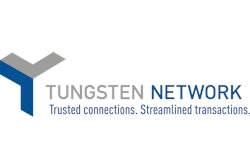Espoo, Finland—June 30, 2014—About 840 million electronic invoices were processed and delivered to invoice receivers in 2013 by members of the European e-Invoicing Service Providers Association (EESPA), based on a set of survey results completed in June 2014. This represented a significant growth of 19 percent over 2012 volumes of 706 million.
EESPA commissioned this first annual survey among its members as part of a continuing commitment to supporting the rapid market growth of e-invoicing and to play its part in monitoring take-up. The survey was carried out through a trusted third party on the basis of actual transaction volumes, collected on a confidential basis from individual EESPA members for the calendar years 2012 and 2013.
The majority of invoices processed were business-to-business or business-to-government (B2B or B2G) invoices (603 million invoices in total in 2013), although the EESPA membership also has a significant involvement in the delivery of business-to-consumer (B2C) invoices (237 million invoices in total in 2013).
|
B2B and B2G |
2012 |
2013 |
Increase |
|
Direct – Electronic invoices delivered to customers |
390,494,710 |
463,512,001 |
18.70% |
|
Indirect – Electronic invoices delivered to non-EESPA service providers and EESPA service providers not participating in the survey |
126,837,404 |
139,513,992 |
9.99% |
|
Total |
517,332,114 |
603,025,993 |
16.56% |
|
|
|
|
|
|
B2C |
|
|
|
|
Direct – Electronic invoices delivered to customers |
157,670,684 |
174,493,368 |
10.67% |
|
Indirect – Electronic invoices delivered to non-EESPA service providers and EESPA service providers not participating in the survey |
30,968,673 |
63,216,762 |
104.13% |
|
Total |
188,639,357 |
237,710,130 |
26.01% |
|
|
|
|
|
|
Grand total |
705,971,471 |
840,736,123 |
19.09% |
EESPA members were asked to report the volume (i.e. number of items) of all e-invoices delivered by them to buyers connected to their network or service, and also volumes delivered to buyers connected to a service provider outside the EESPA community. Each member was asked to carefully identify only items representing truly electronic invoices, irrespective of the process through which the invoice or the invoice data were collected from suppliers.
The figures represent an indication of the total footprint represented by the EESPA community in relation to the growing volumes of e-invoices now being processed at the expense of traditional paper documents. The majority of EESPA members participated in the survey, although it is the case that a number of members were, for practical reasons, not able to participate in this first survey. Nevertheless, by any measure of volume and growth, the EESPA service providers are making a significant contribution to the adoption of electronic invoicing across both Europe and more widely. Service provider networks, and services to buyers and suppliers contribute a growing and sizeable element of total electronic invoice volume, and these services are more often than not preferred to direct connections between suppliers and buyers, which can be cumbersome to manage and do not take advantage of network effects.
By EESPA’s own estimates based on comparing its member’s volumes in relation to overall estimates of total electronic invoices processed across Europe, the EESPA members are processing and delivering more than 50 percent of all truly electronic B2B/B2G invoices to European receivers. This takes into account some conservative assumptions regarding member volumes delivered outside Europe and the volumes of members not participating in the survey this year.
The survey also collected information on the volume of invoice transactions exchanged with other service providers on the basis of interoperability agreements, whereby invoices intended for delivery to a receiver on a network other than the one used by the supplier are transferred between cooperating service providers. The B2B/B2G volumes exchanged in this way in 2013 were 140 million (127 million in 2012), representing a faster growth rate than overall market growth. Interestingly B2C invoices exchanged through interoperability grew even more rapidly. The growth of interoperability prompted EESPA to prepare a Model Interoperability Agreement, which went live in 2012 and is finding increasing adoption among its membership.
“What the research clearly shows is that the adoption of e-invoicing, and volumes of e-invoices from and between the companies increased significantly. We expect the adoption of e-invoicing to increase even more rapidly on a European and global scale as the benefits of e-invoicing are realized more widely with the support of regulatory standards and a supportive infrastructure,” said Esa Tihilä, co-chair of EESPA and chief executive officer, Basware. "We as service providers can smooth the change by providing our expertise in support of regulators, and providing our customers with easy-to-use solutions and open e-commerce networks."
"With EESPA members processing at least half of all e-invoices in Europe, it is clear that our community of members is playing a vital part in making supply chain automation a reality with its cost, efficiency and liquidity benefits. The activities of our members give adopting organizations the element of confidence that is required," added Charles Bryant, co-chair of EESPA and European affairs adviser, Tungsten Network. "Working together as an industry trade association, EESPA will continue to follow the pace of change with our own annual survey to provide fresh reliable data on e-invoicing from within the industry every year.”
EESPA was formed in 2011 as an international not-for-profit association. It acts as a trade association at a European level for a large community of e-invoicing service providers, drawn from organizations that provide network, business outsourcing, financial, technology and electronic data interchange (EDI) services. It focuses on public policy issues, the creation of an interoperable eco-system and championing the widespread adoption of e-invoicing for the benefit of economic efficiency and growth.
















